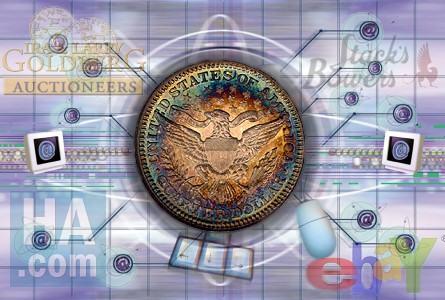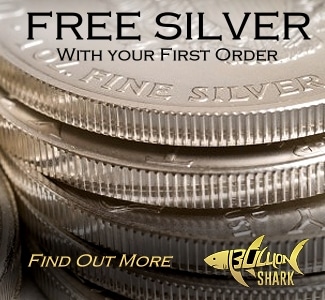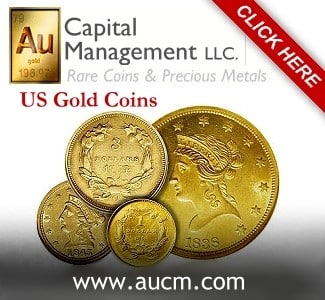By Doug Winter – RareGoldCoins.com ……
In my last blog, I discussed ways how the internet has impacted the concept of eye appeal when it comes to coins. Continuing this internet-related theme, I’d like to focus on how the web has impacted rare coin auctions.
 The impact of the internet on coin auctions in the past ten years has been monumental; more so, I’d venture to say, than virtually any other collectible. Ten years ago, the auction business had a number of vital firms offering coins; today it is essentially a duopoly. Ten years ago, auctions were primarily a place where dealers battled against each other in a sort of numismatic bloodsport; today, they are kinder and gentler. Most importantly, the numbers have grown beyond what I would have ever expected. It is now commonplace for an auction to realize $40-50 million; a decade ago this would have been startling, front-page-of-Coin World news.
The impact of the internet on coin auctions in the past ten years has been monumental; more so, I’d venture to say, than virtually any other collectible. Ten years ago, the auction business had a number of vital firms offering coins; today it is essentially a duopoly. Ten years ago, auctions were primarily a place where dealers battled against each other in a sort of numismatic bloodsport; today, they are kinder and gentler. Most importantly, the numbers have grown beyond what I would have ever expected. It is now commonplace for an auction to realize $40-50 million; a decade ago this would have been startling, front-page-of-Coin World news.
Let’s look at a few specific areas of how the internet has changed the coin auction market and, as you knew I would, I’ll add my two cents worth about the positives and negatives of each.
1. Everybody (and I mean everybody) now has a computer. Ten years ago, it was not uncommon for me to speak with a well-heeled collector and have him say “I don’t do computers.” In 2011, if you don’t have a computer, you are either a total Luddite or you are stubborn and doing yourself a huge disservice as you placing yourself at a hugely competitive disadvantage; sort of like fighting a war with sticks and fire clubs. And ten years ago, most people who had computers didn’t have DSL or fast connections. Remember dial-up? Remember waiting two minutes for an image to load only to lose a connection? Not an image I look back at fondly…
The fact that everybody now uses fast computers is compounded by portability of these machines. Ten years ago, a collector might panic when he realized that an auction he cared about was the same time as his family’s spring break trip to Florida. With laptops and iPads, your location is almost meaningless. This makes participation is an auction easier than ever as does, of course, the increased memory of today’s computers.
What will see 10 years from now? Three dimensional images of coins? Auctions broadcast live in 3-D? Tons of applications to make bidding and determining value easier? My guess is that we’ll see things we can hardly imagine now and that they will continue to revolutionize the rare coin business.
2. Collectors have gained so much confidence in the auction process (kudos here to Heritage who I give total credit to for this) that a sizable percentage of coins at auction now sell to end-users. I don’t know the exact percentage of coins in a typical Heritage sale that sell to collectors but I’m guessing its over 50% by value. And I’m guessing that ten years ago this figure was far less.
This brings me to a quick story. For me, the greatest coin sales of all time were the Bass auctions, held in 1999 to 2001. I can remember at the Bass II sale (to me, the single most memorable of the four sales) there were less than a dozen collectors in the auction room participating. And, of course, no internet and probably not much mail or phone bidding. Today, a sale of this magnitude would attract hundreds of well-heeled collectors from all over the world. The internet has made coin auctions so much more accessible and, as a result, they are now so much more collector-dominated.
3. Transparency is the numismatic buzzword of this decade; sort of like “green” is to consumer products. Ten years ago, the thought of transparency made numismatic auction firms recoil in horror. Only Heritage was smart enough to realize that by being transparent they would gain the trust of their clients and, in turn, do more business. The lack of transparency (and the failure to embrace technology early on) was one of the main things that did in Heritage’s largest rivals in the coin auction business.
The coin auction business is now built on a platform that is far more transparent than other collectibles. This has had an impact on both collectors and dealers. In the past, a dealer could buy a coin from an auction, mark it up (or upgrade it) and offer it for sale, often with the potential buyer having no idea where it was from. Now, most coins in dealer’s inventories can be easily traced to auctions. If a dealer offers a coin for $8,000 that just sold at a Heritage sale for $5,000, it might greatly offend a potential client. Margins, for internet-savvy buyers, tend to be smaller as a result.
4. This access to information has put the collector on much more level playing field than ever before. Even a new collector can see what coins bring at auction and now have a degree of comfort knowing that there is (hopefully) a legitimate under-bidder at 5-10% less than what they just paid.
To me, the existence of such huge databases as the Heritage auction archives and the PCGS auction prices realized archives are incredibly valuable. Ten years ago, I had my own databases for most branch mint gold but this was a ton of work. Now, someone else does the work for me and, frankly, they do it better. The amount of information available to collectors has leveled the playing field; not always the best thing for me as a dealer but certainly a great thing for the collector. Actually, let me correct myself. It probably, in the long run, is great for me as a dealer…
5. With the exception of Platinum Night sessions at FUN and summer ANA, the typical coin auction room is now nearly empty. You can go to a Heritage or Bowers sale at a B level show and see eight people in the room who don’t work for the firm holding the sale; and four are there for the free food. People now use the internet to bid or they bid by phone.
I have mixed feelings about this. I don’t miss the days when I’d be at a coin show from 8am until 6pm then run to an auction and work another five or six hours. Those 16 hour days were OK when I was 28 but they became less and less fun as I got older. But I do miss knowing who was buying what; especially at “name” sales or specialized collections where this knowledge was important for the future. I think this sort of “depersonalizes” the rare coin auction business and when I do get to dress up and bid on expensive, important coins in front of my peers I still get a little bit of a tingle.
6. You know the feeling when you are on eBay and you get outbid on an $8.00 post card? You get irritated and even though you know you shouldn’t bid anymore, you bid another time (or two or three or four…) to get back at the anonymous competitor who is keeping you from adding that 1939 World’s Fair postcard to your collection. Take the same scenario and apply it to a $50,000 coin. I call this the rise of the “I-must-have-it” internet bidder.
Heritage has created an amazingly efficient live auction internet platform that makes it easy to bid in their sales in real time. I can think of many occasions when two determined internet bidders have done battle on a coin worth, say $25,000, and wound-up pushing the selling price to $50,000 or even $75,000 because they were pissed at their anonymous competitor(s).
Heritage has made it so easy to bid and re-bid online that many collectors go “ah, what’s another bid or two or three” before they realize that they’ve added a big amount of money onto a lot. But the beauty of this system is that there are two actual bidders in real competition. In the past, it could have been (and often was) one unfortunate bidder being run up by an unscrupulous auctioneer.
I could go on and on but need to get ready to go to the Baltimore coin show–and attend an auction. I’d love to hear your input on how the internet has changed the coin business. Leave a comment at the end of this blog and let me know your thoughts!





Great write up on the subject!! I miss seeing my old coin buddies at the auction, the excitement of challenging other bidder face to face, meeting new dealers that you can actually put a face to a name; but i certainly enjoy the comfort of the process not having to jump on a flight, tote coins around, long hours of looking through thousands of coins that now take five minutes on the internet..there is nothing more painful than looking for a common date Morgans at the right price to fill an order for a customer..hhha. It does seem to level the playing field of availability and fair price a little more from dealer to dealer. Pete Hunt from Sunshine State Florida